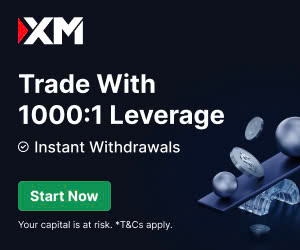
9 minute read
Is XM Legal in Japan? A Comprehensive Review
The question of whether XM, a globally recognized forex and CFD trading platform, is legal in Japan has sparked significant interest among traders and investors. With Japan’s stringent financial regulations and the growing popularity of online trading, understanding the legal status of brokers like XM is crucial for Japanese residents looking to engage in forex and CFD trading. This comprehensive review explores the legality of XM in Japan, its regulatory status, the broader context of forex trading in Japan, and what traders need to know to make informed decisions.

💥 Trade with XM now: Open An Account or Visit Brokers 🏆
Understanding XM: A Global Trading Platform
XM, operated by Trading Point Holdings, is a well-established online broker offering forex, Contracts for Difference (CFDs), and other financial instruments. Since its founding in 2009, XM has grown to serve millions of clients worldwide, offering access to over 1,000 financial instruments, including forex pairs, stocks, commodities, indices, and cryptocurrencies. The platform is known for its user-friendly interface, low minimum deposit requirements (starting at $5), and competitive trading conditions, such as tight spreads and high leverage options.
XM operates under multiple subsidiaries regulated by reputable authorities, including:
· Cyprus Securities and Exchange Commission (CySEC) for European Economic Area (EEA) clients.
· Australian Securities and Investments Commission (ASIC) for Australian clients.
· Financial Services Commission of Belize (FSC) for global clients.
· Dubai Financial Services Authority (DFSA) for Middle Eastern clients.
However, one critical point for Japanese traders is that XM is not registered with Japan’s Financial Services Agency (FSA), the primary regulatory body overseeing financial markets in the country. This raises questions about its legality and safety for Japanese residents. Let’s dive into the specifics.
Forex Trading in Japan: A Regulated Landscape
To understand XM’s legal status in Japan, it’s essential to grasp the regulatory framework governing forex trading in the country. Forex trading is legal in Japan and has been since the amendment to the Foreign Exchange and Foreign Trade Control Law in 1998, which liberalized currency trading for retail investors. Japan is one of the world’s largest forex markets, with approximately 2.9 million active traders, contributing to a vibrant trading ecosystem.
The Financial Services Agency (FSA), established in 2000, oversees Japan’s financial markets, including forex and CFD trading. The FSA enforces strict regulations to protect investors and maintain market stability. Key regulatory requirements include:
· Licensing: Forex brokers operating in Japan must be registered with the FSA and comply with the Financial Instruments and Exchange Act (FIEA).
· Leverage Limits: The FSA caps leverage at 25:1 for forex trading and 10:1 for CFDs to reduce risk for retail traders.
· Investor Protection: The Japan Investor Protection Fund (JIPF) compensates investors up to ¥10 million if a registered broker goes bankrupt. However, this protection does not extend to CFD traders or those using unregulated brokers.
· Taxation: Profits from forex and CFD trading are classified as miscellaneous income and are subject to taxation, with rates varying based on total income.
The FSA’s stringent oversight ensures that only licensed brokers can legally solicit Japanese residents. Unregistered brokers, like XM, face restrictions on direct marketing or solicitation in Japan.
Is XM Legal in Japan?
The short answer is that XM is not illegal for Japanese residents to use, but it operates in a gray area due to its lack of registration with the FSA. Here’s a detailed breakdown:
1. XM’s Regulatory Status in Japan
XM is not licensed by the FSA, which places it on the agency’s warning list of unregistered brokers. This list identifies overseas brokers that offer financial services to Japanese residents without proper authorization. However, being on the warning list does not mean XM is engaging in illegal activities or is inherently unsafe. Instead, it indicates that XM does not comply with Japan’s FIEA because it operates outside the country’s jurisdiction.
Japanese residents can still open accounts with XM and trade at their own risk. The platform’s lack of FSA registration means it is not subject to Japan’s strict leverage limits, investor protection schemes, or other local regulations. For example, XM offers leverage up to 1000:1 for non-EU clients, significantly higher than Japan’s 25:1 cap. While this may appeal to traders seeking higher leverage, it also increases risk.
2. Why Isn’t XM Registered with the FSA?
XM’s decision not to register with the FSA is likely due to Japan’s rigorous regulatory requirements. Obtaining an FSA license involves:
· Establishing a local entity in Japan.
· Complying with strict capital requirements.
· Adhering to leverage caps and other trading restrictions.
· Undergoing regular audits and inspections.
For a global broker like XM, which serves clients in multiple jurisdictions, aligning with Japan’s unique regulations may not be cost-effective, especially since it can still attract Japanese clients without direct solicitation. Instead, XM relies on its licenses from CySEC, ASIC, and FSC, which are considered robust by international standards.
3. Is It Safe to Trade with XM in Japan?
While trading with XM is not illegal, the lack of FSA oversight means Japanese traders do not benefit from local investor protections. For instance:
· No JIPF Coverage: If XM were to face financial difficulties, Japanese clients would not be eligible for compensation under the Japan Investor Protection Fund.
· Higher Risk with Leverage: XM’s high leverage options (up to 1000:1) can lead to significant losses, especially for inexperienced traders.
· Tax Compliance: Japanese traders using XM must independently report their profits for tax purposes, as unregistered brokers do not facilitate tax reporting to the FSA.
Despite these risks, XM is widely regarded as a reputable broker globally. Its regulation by CySEC, ASIC, and FSC ensures a level of oversight, including client fund segregation and negative balance protection. Additionally, XM has a strong track record, with no major scandals or fraud allegations since its inception.
4. Affiliate Marketing and XM in Japan
Another aspect to consider is XM’s affiliate marketing program, which allows individuals to earn commissions by referring new clients. In Japan, affiliate marketing for unregistered brokers like XM is considered a gray area. The FSA prohibits direct solicitation, such as phone calls or unsolicited messages, but indirect promotion through blogs or social media is generally permissible. Providing investment advice without a license or offering incentives for account openings is illegal and could lead to penalties.
Japanese residents interested in XM’s affiliate program should exercise caution and avoid prohibited activities, such as direct solicitation or offering investment advice, to stay compliant with local laws.

💥 Trade with XM now: Open An Account or Visit Brokers 🏆
Pros and Cons of Trading with XM in Japan
To help Japanese traders make an informed decision, here’s an overview of the advantages and disadvantages of using XM:
Pros
· Global Regulation: XM is regulated by CySEC, ASIC, and FSC, ensuring a degree of safety and transparency.
· Low Entry Barrier: A minimum deposit of $5 makes XM accessible to beginners.
· High Leverage: Up to 1000:1 leverage for non-EU clients, offering flexibility for experienced traders.
· Wide Range of Instruments: Over 1,000 tradable assets, including forex, stocks, commodities, and cryptocurrencies.
· User-Friendly Platforms: Supports MetaTrader 4 (MT4) and MetaTrader 5 (MT5), with mobile and desktop compatibility.
· Educational Resources: Offers webinars, tutorials, and a demo account for learning and practice.
Cons
· No FSA License: Lacks local regulatory oversight and investor protection in Japan.
· High Leverage Risks: Higher leverage increases the potential for significant losses.
· Tax Reporting: Traders must independently handle tax obligations, which can be complex.
· Limited Product Portfolio: Primarily focuses on forex and CFDs, with no binary options or futures trading.
Alternatives to XM for Japanese Traders
For traders concerned about XM’s lack of FSA registration, several FSA-licensed brokers offer similar services. These brokers comply with Japan’s regulations, including leverage caps and investor protection schemes. Some notable alternatives include:
· Oanda: A well-regulated broker with a strong presence in Japan, offering competitive spreads and a user-friendly platform.
· IG: Known for its robust regulatory framework and extensive range of tradable assets.
· Forex.com: Offers a reliable trading environment with FSA oversight and comprehensive market analysis tools.
· AvaTrade: Regulated in Japan and other jurisdictions, AvaTrade provides low spreads and a wide range of CFDs.
These brokers are fully compliant with Japanese regulations, making them safer options for traders prioritizing local oversight.
Key Considerations for Japanese Traders
If you’re a Japanese resident considering trading with XM, here are some practical tips to ensure a safe and compliant experience:
· Understand the Risks: High leverage and lack of FSA oversight increase financial risks. Only trade with funds you can afford to lose.
· Verify Regulation: Confirm that XM’s services are provided by a regulated entity (e.g., CySEC or ASIC) and understand the associated protections.
· Tax Compliance: Consult a tax professional to ensure proper reporting of trading profits to avoid penalties.
· Use a Demo Account: Test XM’s platform with a demo account to familiarize yourself with its features before committing real funds.
· Avoid Illegal Practices: If participating in XM’s affiliate program, refrain from direct solicitation or offering investment advice without a license.
Conclusion: Is XM a Viable Option for Japanese Traders?
XM is not illegal for Japanese residents to use, but its lack of FSA registration places it in a regulatory gray area. While the platform offers competitive trading conditions, global regulation, and a user-friendly experience, Japanese traders must weigh the risks of trading with an unregistered broker. The absence of local investor protection and the need for independent tax reporting are significant considerations. For those prioritizing regulatory compliance, FSA-licensed brokers like Oanda, IG, or AvaTrade may be safer alternatives.
Ultimately, the decision to trade with XM depends on your risk tolerance, trading experience, and preference for global versus local regulation. By understanding Japan’s regulatory landscape and XM’s offerings, you can make an informed choice that aligns with your financial goals.
💥 Note: To enjoy the benefits of the partner code, such as trading fee rebates, you need to register with XM through this link: Open An Account or Visit Brokers 🏆
Read more:

